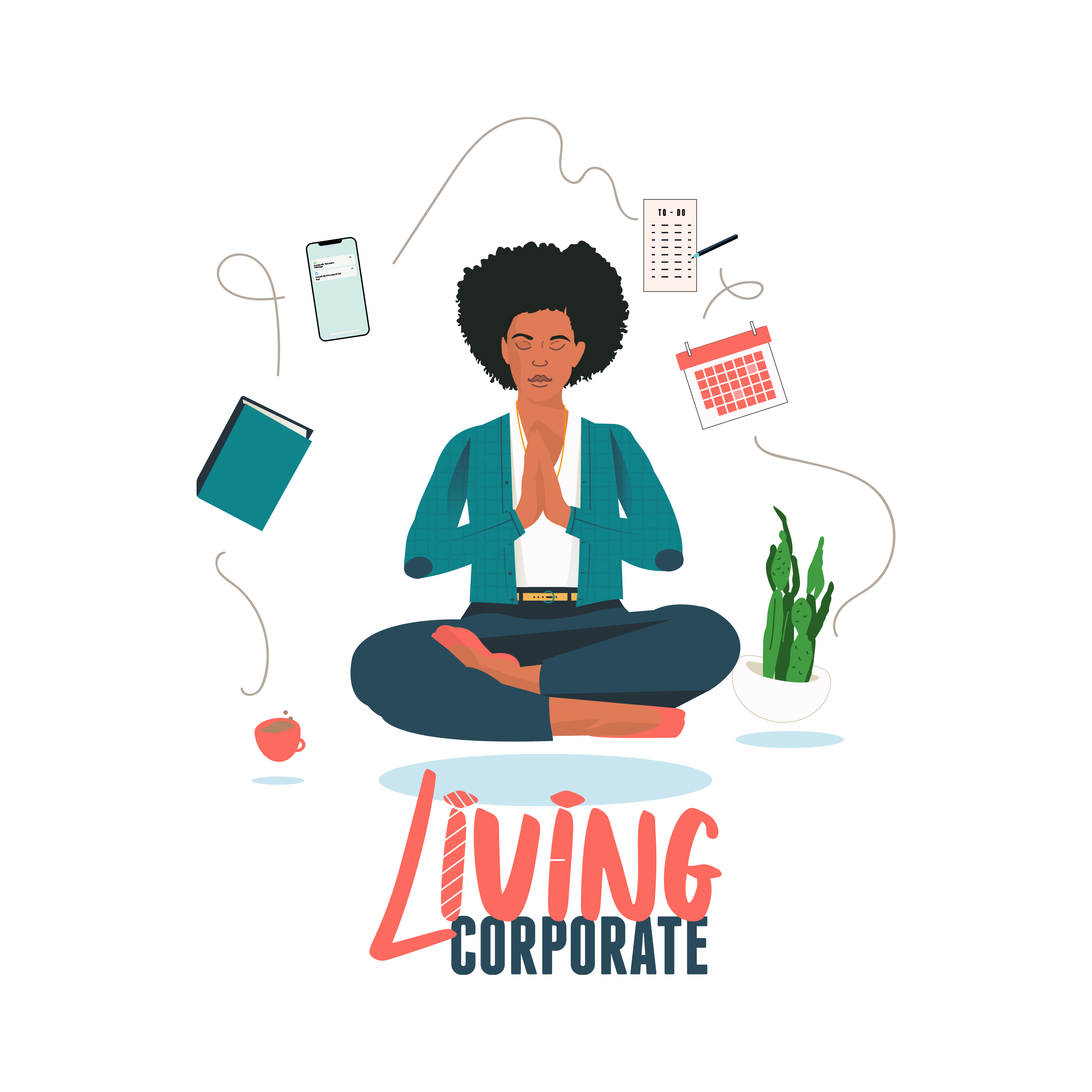
245 : Organizational Models + White Supremacy (w/ @CC_Rosenthal) > @LivingCorp_Pod

Episode Notes
Zach has the honor of speaking with Dr. Caitlin Rosenthal, an Assistant Professor at University of California, Berkeley and author of 2018’s “Accounting for Slavery,” in an episode themed around organizational models and white supremacy. She and Zach touch on everything from violence and technology to reparations to the problems with the “business case for diversity.” Check the show notes to connect with Dr. Rosenthal and order her book!
Learn more about (and buy!) Dr. Rosenthal’s book “Accounting for Slavery” on Amazon.
https://amzn.to/3dKVgZ3
Connect with Dr. Rosenthal on LinkedIn and Twitter.
https://bit.ly/38lQeRK
https://bit.ly/2ZlvANj
Click here to find out more about The 1619 Project.
https://nyti.ms/2CVwIQl
Visit our website.
https://bit.ly/living-corporate
TRANSCRIPT
Zach: What’s up, y’all? It’s Zach with Living Corporate, and, you know, I have to say I’m thankful that this platform has been going on for a couple of years before it was hyper trendy to center black voices in and outside of the workplace. I am. I’m thankful for that. With that in mind, today we have Dr. Rosenthal, who will be talking about how chattel slavery has helped inform a lot of formal and informal practices in the workplace today. You’ll notice at one point of our conversation that we talk about overseers or, in layman’s terms, slaves that were picked by the planters, or plantation owners, to watch over the rest of the slaves. Like all things regarding American slavery, this was a method of control through delegation, and one thing I want to caution in this moment, both leaders and non-leaders alike, is not modeling this, especially in your diversity, equity and inclusion efforst, right? So what do I mean by that? So white comfort is not only the default. It’s not just the default in diversity, equity and inclusion. It’s not just the default at work. It’s the default in America, but it’s the gravitational force by which all things center on or center back to. So there’s going to be a constant pressure to frame things, say things, do things, that do not make the majority uncomfortable. And, you know, so to leaders I will say it’s easy, unintentionally or otherwise, to pick and position voices that you’re comfortable with as representatives of your diversity councils or panelists for your events or employee resource groups, and so my challenge to you in this moment is to push past your comfort and listen to, better yet, truly cede power to voices that challenge you, okay? And so then, with that same spirit, I want to say to my chosen few who end up being selected in these positions, interrogate your own intentions, right? This is not an opportunity for a come-up. This is an opportunity to drive real equity for the people that look like you, and so ask yourself how you can take the privilege and access and platform you’ve been temporarily granted–again, notice, temporarily granted–and how you can use that to help other people, right? So this is what we’re gonna do. We’re gonna play a clip from a speech by Malcolm X, and then we’re going to pivot into the conversation that we had with Dr. Rosenthal earlier this year. Catch y’all next time. Peace.
Malcolm X: “Back during slavery there was two kinds of slaves. There was the house Negro and the field Negro. The house Negro, they lived in the house with master. They dressed pretty good. They ate good. Because they ate his food, what he left. They lived in the attic or the basement, but still didn’t live near their master. And they loved their master more than the master loved himself. They would give their life to serve their master’s house quicker than the master would. The house Negro, if the master said, “We got a good house here,” the house Negro would say, “Yeah, we got a good house here.” Whenever the master said “We,” he said, “We.” That’s how you can tell a house Negro. If the master’s house caught on fire, the house Negro would fight harder to put the blaze out than the master would. If the master got sick, the house Negro would say, “What’s the matter, boss? We sick. We sick.” He identified himself with his master more than his master identified with himself. And if you came to the house Negro and said, “Let’s run away, let’s escape, let’s separate,” that house Negro would look at you and say, “Man, you crazy. What you mean, separate? Where is there a better house than this? Where can I wear better clothes than this? Where can I eat better food than this?” That was that house Negro. In those days he was called a “house nigga.” And that’s what we call him today, because we’ve still got some house niggas running around here. On that same plantation, there was the field Negro. The field Negro, those were the masses. There was always more Negros in the field than there was Negros in the house. The Negro in the field caught hell. He ate leftovers. In the house they ate high up on the hog. The Negro in the field didn’t get nothing but what was left of the insides of the hog. They call them chitlins nowadays. In those days they called them what they were: guts. That’s what you were, a gut-eater. And some of you all still gut-eaters. The field Negro was beaten from morning till night. He lived in a shack, in a hut. He wore cast-off clothes, and he hated his master. I say he hated his master. He was intelligent. That house Negro loved his master. But that field Negro, remember, they were in the majority, and they hated the master. When the house caught on fire, he didn’t try and put it out. That field Negro prayed for a wind, for a breeze. When the master got sick, the field Negro prayed that he’d die. If someone come to the field Negro and said, “Let’s separate, let’s run,” he didn’t say “Where we going?” He said, “Any place is better than here.” You’ve got field Negros in America today. I’m a field Negro. The masters are the field Negros. When they see this man’s house on fire you don’t hear these little Negros talking about, “Our government is in trouble.” They say, “The government is in trouble.” Imagine a Negro, “Our government.” I even heard one say “Our astronauts.” They won’t even let him near the plant, but our astronauts, our Navy. That’s a Negro that’s out of his mind. Just as the slave master in that day used Tom, the house Negro, to keep the field Negros in check, the same ol’ slave master today has Negros who are nothing but modern Uncle Toms, 20th-century Uncle Toms to keep you and me in check, keep us under control, keep us passive and peaceful and non-violent. That’s Tom making you non-violent. It’s like when you go the dentist and the man’s gonna take your tooth. You’re gonna fight him when he starts pulling, so they squirt some stuff in your jaw called novacaine to make you think they’re not doing anything to you. So you sit there, and ’cause you got all that novacaine in your jaw you suffer peacefully. Blood running all down your jaw and you don’t know what’s happening ’cause someone has taught you to suffer peacefully. The white man do the same thing to you in the street. When he wants to put knots on your head and take advantage of you and don’t have to be afraid of you fighting back, to keep you from fighting back he’d get these old, religious Uncle Toms to teach you and me. They’re just like novacaine. Suffer peacefully. Don’t stop suffering, just suffer peacefully.”
Zach: Today we have a whole Ph.D on the podcast, y’all, a whole–not a half, a whole Ph.D, Dr. Caitlin Rosenthal. Dr. Caitlin Rosenthal is an assistant professor of history at UC Berkeley. She was previously a post-doctoral fellow at Harvard, and she’s brought history into fresh focus with her new book Accounting for Slavery: Masters and Management, which examines how white owners of enslaved black people were early innovators of many business practices and terms we use today. Dr. Rosenthal’s work has been featured in The Boston Review and The Harvard Business Review just to name a couple. So let me just say this to start, okay? And this is a longer monologue than we typically do, right, but, I mean, this matters to me. Black folks are often looked at as annoying or conspiracists or dramatic or whatever you want to call it when we “go all the way back to slavery” to contextualize the world that we live in today, yet here we have you, Dr. Rosenthal, a whole professor who’s done work in examining the complex managerial systems of the 18th and 19th century plantation owners. It’s an honor to have you here, welcome to the show, and how are you doing?
Dr. Rosenthal: I’m doing well, and I’m delighted to be here for what seems to be a really, really important conversation. And like you say, you know, it’s been a learning experience for me to see how much pushback people get when they say something goes all the way back to slavery, because it of course does go all the way back to slavery through Jim Crowe, through redlining, through everything, but I think it’s really powerful to take the conversation all the way back.
Zach: Well, you know, it’s interesting. A lot of times, you know, folks will be like, “Slavery was 3,000 years ago!” It’s like, “Dog, no, it wasn’t.”
Dr. Rosenthal: No. We’re, like, only a couple of generations away.
Zach: Right. I mean, there was this comedian, and one time he said, like, “If you took two old, black grandmas and put ’em together, that’s–slavery was that long ago.” Like, it’s not that long ago. And, you know, I don’t want to bury the lede, right, so let me ask you a question perhaps out of sequence. I would imagine some folks that are listening to this podcast, folks who have read your work even, even if only at a summary level, the question has to be “So what?” So what should executive leaders, what should leaders, what should white folks, what should people in any type of position of authority at work, what should they take from the work that you’ve done?
Dr. Rosenthal: So my book, Accounting for Slavery, is really an effort to write slavery back into the history of management practices and to the history of business more broadly. From productivity analysis to cost accounting, slave holders were, in many ways, at the forefront of using innovative management practices. And what should we take away from that? I think it’s really two things. One is how compatible violence and coercion can be with business practices and with American capitalism, and so this is a story about how those two really difficult things can go together, which means we’ve gotta be really, really careful if we want to have a more humane version of capitalism and more humane work environments. I think it’s also a picture of–you know, for me it’s about the need for labor regulation. The abolition of slavery is a landmark in labor regulation, and this is–in a way, these records that I use are portraits of what management practices could look like if planters and business people were allowed to do basically anything they wanted and if anything, including lives, was up for sale.
Zach: You know, as I read your book I think about Nikole Hannah Jones–you just talked about it a little bit at the top, but Nikole Hannah Jones, who shared the amount of vitriol that she has received and continues to receive regarding the 1619 Project, not only from the public but from, like, academics. You know, what was your journey, like, compiling this research, and how would you characterize its reception in academic arenas?
Dr. Rosenthal: So first since you mentioned [?] and the 1619 Project, which I think is such a powerful piece of public history, you know, I have been amazed by the amount of pushback Nikole Hannah Jones has gotten for her work, and I think it’s–you know, partly it’s been a learning experience for me watching, I think, black scholars and black journalists get a lot more pushback than white scholars do working on some of these same issues. So it’s been a learning process for me about kind of how much we haven’t yet reckoned with slavery, and her work is doing some of that difficult work, but she’s getting just huge amounts of pushback for it, amounts of pushback that are totally out of line with what I think are the empirical critiques of the project. I think the project gets the big picture exactly right, and it’s–like, it’s totally amazing. Now, for my own work I have gotten some pushback, and I will tell you the most enlightening thing about kind of taking this project out into the world–and I mostly work with historians and economists–is that you have two almost opposite reactions. One is people are like, “Of course planters were using advanced management techniques. From what we know about the business of slavery it was a big business, and we have plantational [?] that have lots of resources at their disposal. We know the most millionaires in the country at the time were in the richest districts of the cotton South. So of course they were using advanced management practices. What’s new here?” And then the other, opposite perspective is people are totally shocked. Like, they’re absolutely surprised because they think that slavery was holding everyone back. But it’s not holding everybody back. It was holding enslaved people back. It was sometimes holding poor whites back, but it certainly wasn’t holding planters back, and people are really shocked that they were advanced and even innovative in their practices. So it, like, really illustrates the kind of way we have to go in America, in a way, to kind of move the conversation forward, because a lot of people know this–and sure, there’s new things for them in my work pointing to the specific management practices that planters were using–but they don’t find it that surprising, and then there’s a whole ‘nother audience that’s totally shocked.
Find out more at https://living-corporate.pinecast.co
